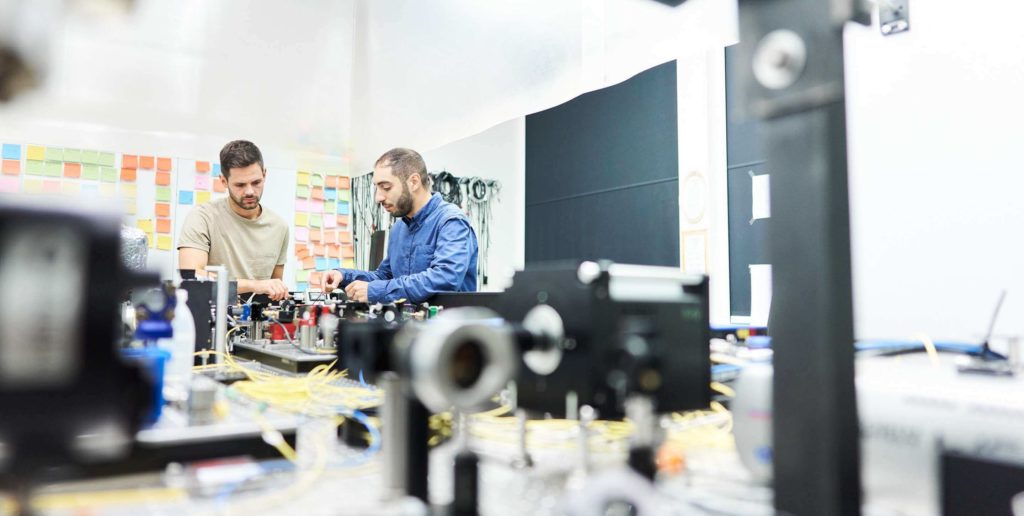
Quantum computers from eleQtron
Our quantum computers are ready to change the world. Freely programmable, scalable and available for industry and science.
The potential applications of quantum computing are huge. But to use them, reliable technologies and the courage to break new ground are needed. We bring both to the table!
As the first quantum computer manufacturer in Germany, we will make computing time on ion-based quantum computers available for industrial applications.
Innovation quantum
Quantum computers will solve problems that are currently unsolvable. Unlike conventional bits of a regular computer, the qubits of a quantum computer can assume combinations of the states 1 and 0 simultaneously. This enables parallel calculations and makes quantum computers incomparably fast and efficient. Supercomputers can’t keep up with them.
Mission MAGIC
For more than 20 years, researchers have been trying to develop scalable quantum computers that take advantage of quantum effects. In the process, however, they are encountering new challenges. The biggest difficulty is shielding and controlling the qubits. They must be isolated from the environment by elaborate processes. Which, depending on their architecture, places enormous demands on cooling and controllable environments. Precise control of the quantum states generated is also difficult to master.
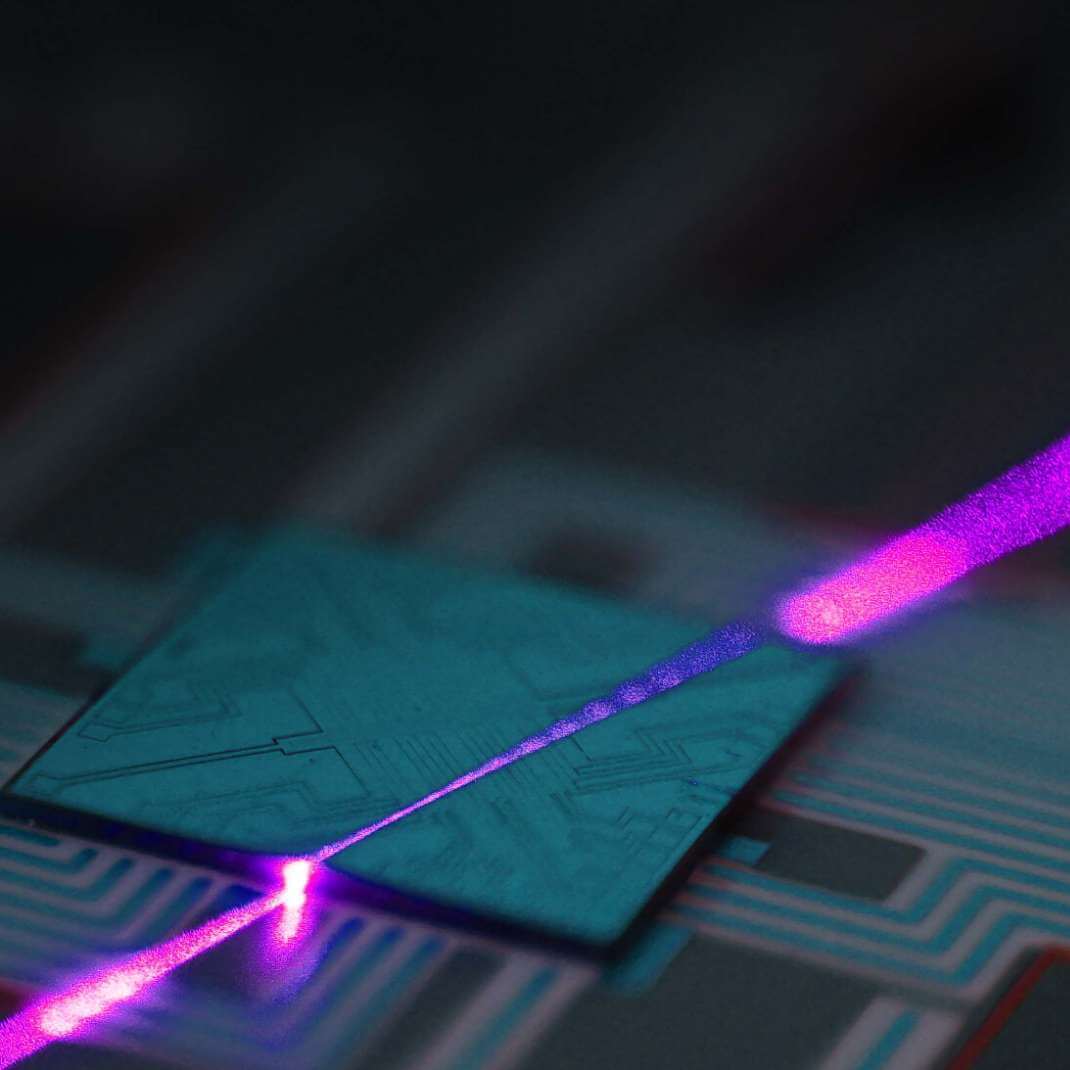
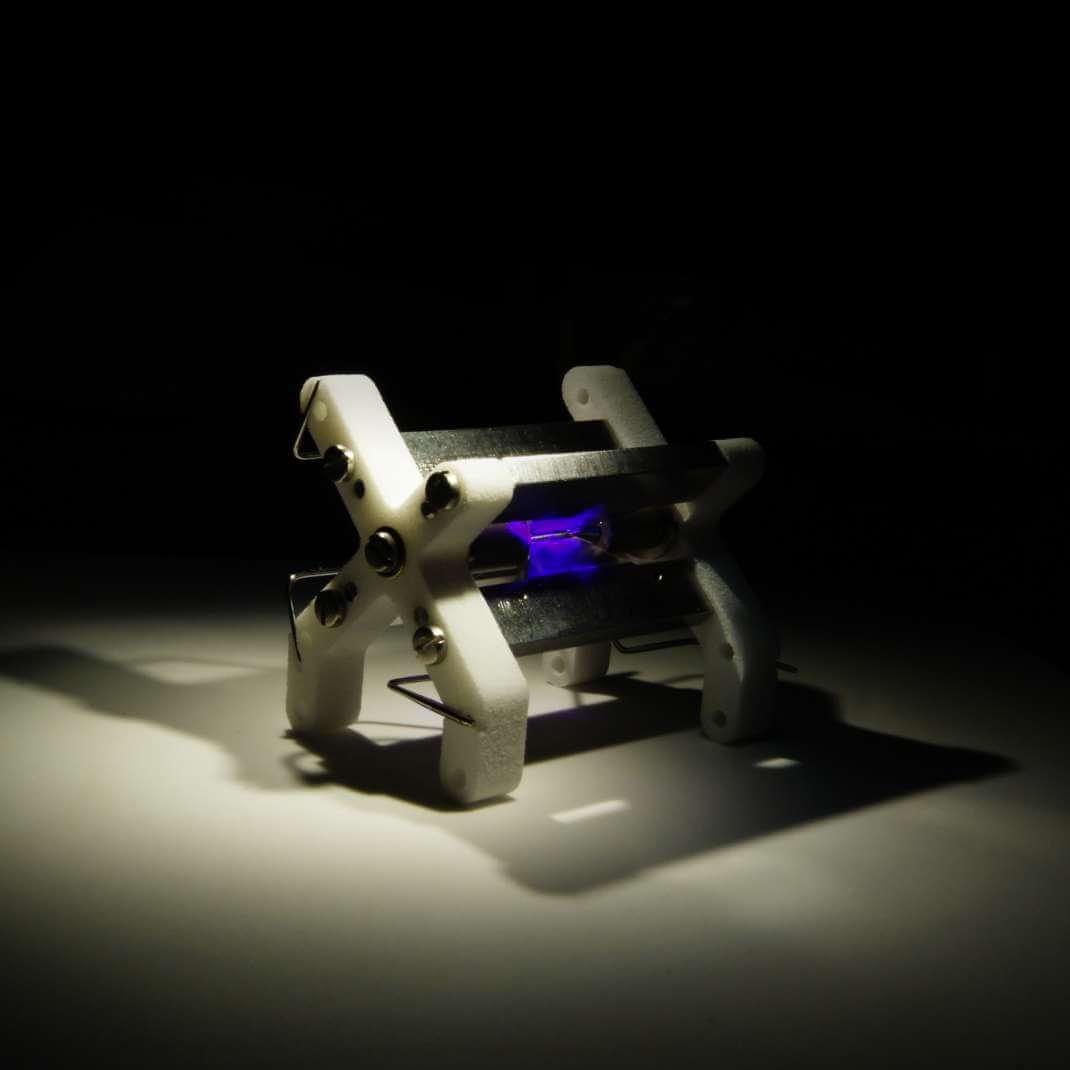
An ion-based
quantum computer with MAGIC
Our unique MAGIC technology is a true milestone. MAGIC (MAgnetic Gradient Induced Coupling) enables us to control ion qubits with high frequency waves. Precisely, reliably and inexpensively. High frequency fields are already ubiquitous in computers and cell phones. Miniaturizable and perfectly controlled.
Individual control of qubits can be integrated into trap chips and can be done with unparalleled quality. We have already been able to demonstrate that control with our MAGIC technology does not exert any undesirable side effects on other qubits, thus significantly reducing a major source of error. The laser cooling as well as the readout of the quantum bits can be performed with much simpler lasers. Commercially available, robust and proven technology is used to control them. In principle, scaling up to more ions will pose no problems either: Miniaturized structures for trapping ions and controlling qubits can be integrated on chips.
Already, our models are outperforming the international competition in key metrics. And we’ve only just begun.
Welcome to
the future!
Quantum advantage is the point at which quantum computers are finally in use and superior to supercomputers. What sounds like a distant future to many is already within reach for us at eleQtron. In order to bring our freely programmable MAGIC quantum computer to market, we are pushing the development of ion trap chips, high frequency technology and algorithms every day. We are also already working to realize specialized quantum computers for scientifically and commercially relevant problems. The technology is ready. And so are we!
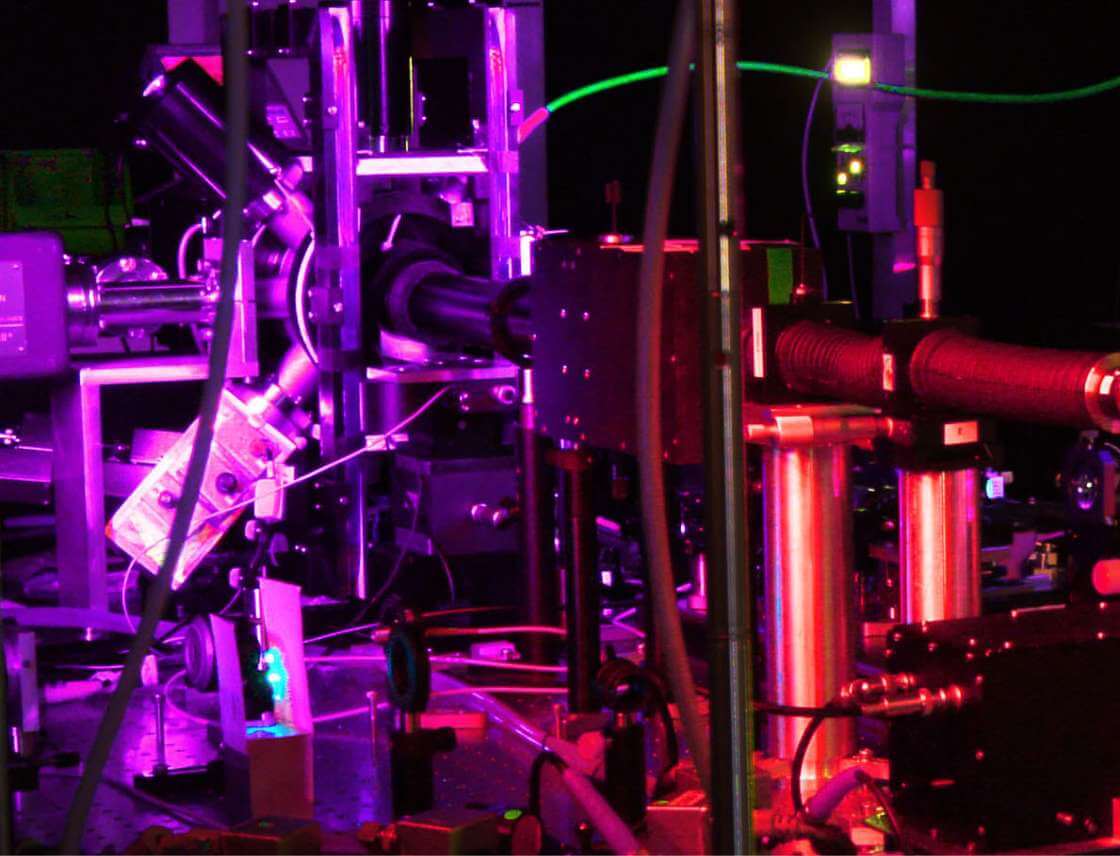
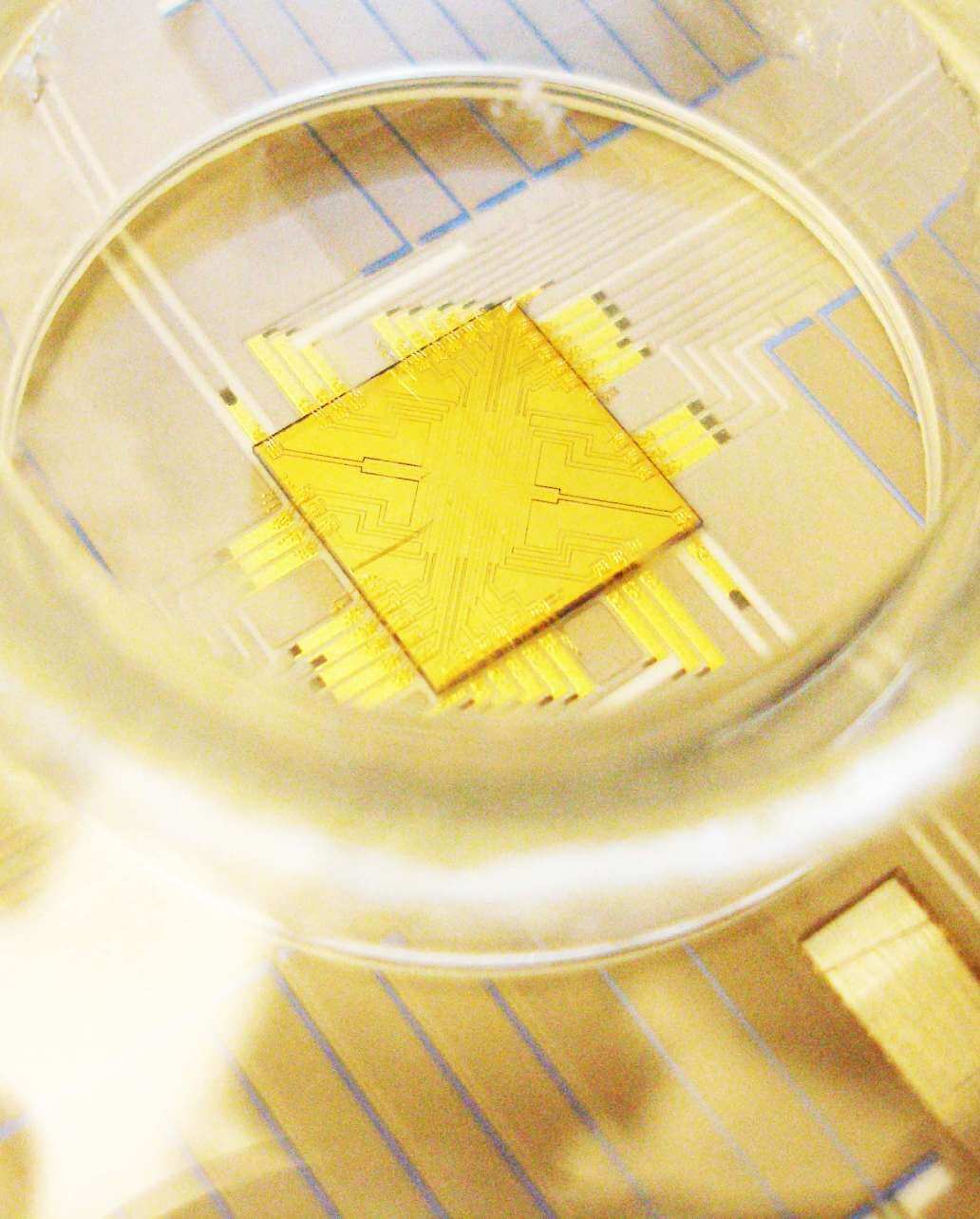

Quantum computers
in action
With our MAGIC App funding project, among others, we are paving the way for the industrialization of quantum computing. Potential applications range from medicine to finance and far beyond.
Optimization
The problem of optimizing functions has long preoccupied science. Quantum parallelism allows the simultaneous testing of many solutions in order to find the best variant a lot faster. Quantum computers would thus be of great importance not only in financial mathematics.
Chemistry and biology
Quantum computers can be used to calculate the properties of large molecules. The simulation of physical particles, their states and interactions can, for example, enable unimagined progress in the development of medicines.
Logistics
Quantum computers could also solve the famous traveling salesman problem: How can the shortest and simplest route be found mathematically efficiently on a tour of various stops? Such complex logistical issues are a potential application area for quantum technology.
Search algorithms
Quantum search algorithms can pick out exactly those entries from large databases that meet certain defined conditions. And it is proven that they do this so quickly and efficiently that no classical search algorithm can keep up.
Cryptography
Quantum-based cryptography promises unprecedented possibilities in encryption and data security. In particular, quantum Fourier transform (QFT) is used for deciphering codes, which we have also already implemented with our computers.
Machine learning
Machine learning has gained enormous importance in recent years. For research, in everyday life and with regard to industry-relevant questions. As already proven by eleQtron, quantum computers can drastically accelerate relevant decision-making processes.
The full potential of quantum computers can hardly be estimated today. But one thing is clear: As technology advances, so do the possibilities and needs. Grow along with us!
Our goals
Our mission? We will be the first German manufacturer to provide computing time on quantum computers via cloud connection. To this end, we are working closely with companies and institutions to adapt our hardware to future areas of application.
The first quantum computer with MAGIC is already in operation. We are currently perfecting the user-friendly software architecture. As part of our BMBF-funded MAGIC App project, we are building three more computers with successively increasing performance and connecting them to the cloud.
Our big goal is to bring a scalable and freely programmable MAGIC quantum computer to the market!
FAQ
Quantum computers can solve mathematical problems that will forever remain closed to conventional computers. With each qubit, the number of operations that can be performed in parallel doubles. In the future, this will make it possible to efficiently tackle problems that were previously practically unsolvable.
A quantum computer calculates with qubits. In contrast to the bits of a conventional computer, a qubit can simultaneously assume combinations (superpositions) of the values 1 and 0. That makes parallel processing of different inputs possible. Several possible solutions can be tried out simultaneously, so to speak. This is what makes quantum computers so much faster and more efficient than classical computers and even supercomputers.
A quantum is the smallest possible unit of a physical quantity. It cannot be further divided. An example of quants are the photons or light particles that make up electromagnetic radiation.
Quantum bits or qubits are the smallest computing units of a quantum computer. Just like the bits in a conventional computer. The difference is that quantum bits can assume the states 0 and 1 simultaneously.
Quantum gates are the elementary calculation operations of a quantum computer. They are not physical components, but time-controllable interactions of qubits with each other or with their environment. The quality of these gate operations can be significantly increased with our MAGIC technology.
The possible applications of quantum computers are manifold. They range from basic research questions, such as the simulation of large quantum systems, to problems in logistics, finance, chemistry or machine learning.
Qubits are extremely sensitive. To make them stable enough to perform calculations, they must be shielded against external influences and interactions must be ruled out. This requires elaborate processes that cool the qubits down to absolute zero, to -273.15°C. Our MAGIC technology can simplify this considerably.
Functioning computers with up to dozens of qubits already exist. They can solve the first special test problems for which classical computers would take much longer. But there is still work to be done before a completely freely programmable quantum computer becomes interesting for industrial applications. The number of qubits and, in particular, the quality of the gate operations (the simplest calculation steps) must be increased.
Specific problems of both scientific and commercial interest can already be tackled by so-called NISQs. NISQs (Noisy Intermediate Scale Quantum Computers) are computers with restricted qubit counts and calculation quality. The design and research of NISQs with industrially relevant performance is already underway, allowing the development of the technology that will be needed for universal quantum computers.
A working demonstrator of our MAGIC technology is already in operation and its software architecture is currently being further perfected. In the coming years, our first product line MAGIC Ruby will go online as a quantum computer of the NISQ era with up to 60 qubits. In addition, we are successively building ever more powerful quantum computers and connecting them to the cloud. Our goal is to bring a scalable, freely programmable quantum computer to market in 2030.
Addressing: Controlling qubits in a targeted manner without them influencing each other is an essential requirement for every quantum computer. MAGIC achieves this better than any other platform.
CNOT: With our MAGIC coupling, we were able to demonstrate an elementary multi-qubit gate between arbitrary ions in a register. The achieved fidelity is now 98% and is comparatively insensitive to thermal excitations of the ions.
Qubit recast: Our qubits can be converted from memory qubits to processor qubits and back again. At lightning speed by high frequency pulses.
Transport: We were able to demonstrate the almost perfect preservation of quantum information during ion transport. An ion was moved over 20 million times over a total distance of 5 km.
Compactification: We have developed a chip carrier for a compact vacuum concept. This is used for basic research and quantum information as well as for transportable ion clocks.
Chip integration: We have developed ion trap chips with integrated miniaturized magnetic field coils for adjustable MAGIC interaction and antennas for RF fields.
Connectivity: We have exploited the high connectivity in quantum registers to implement a more efficient form of quantum Fourier transform.
Flexibility: We have shown how to scale and tune interactions between qubits. This allows cluster states or long-range coupling to be created effectively.
MAGIC learning: By implementing quantum reinforcement learning, we were able to show the improved efficiency over classical algorithms.
Get in touch!
Let’s talk about the future of quantum computing! Write us and learn more about our projects and your opportunities to become part of them.
